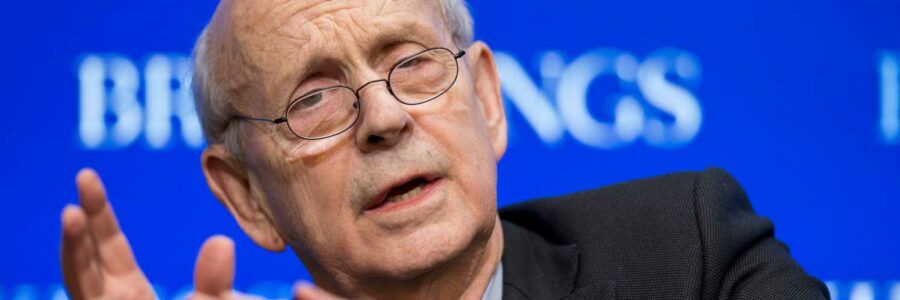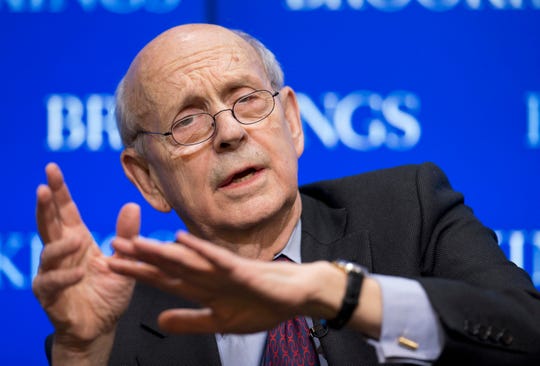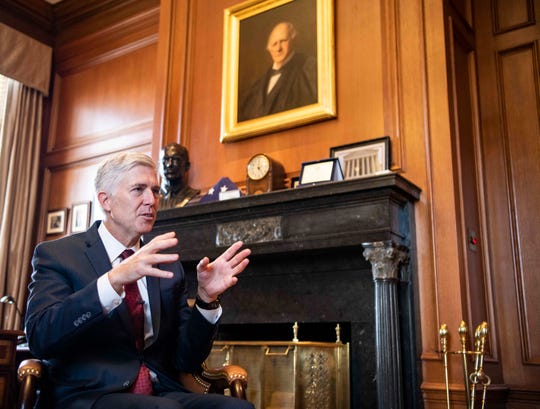
Three Supreme Court justices tackle U.S. partisan divisions in public remarks
WASHINGTON – Three Supreme Court justices on Wednesday urged Americans to reach past partisan divisions and seek common ground as they carefully avoided discussing growing calls on the left for structural changes to the nation’s highest court.
Associate Justice Stephen Breyer, making his second public address in as many weeks, brushed aside divisive political rancor in Washington and discussed how the justices work through ideological differences to build majorities in controversial cases.
“It isn’t such a bad thing, in a country of more than 300 million people where you find people of every race, every religion, every point of view, that they will have on the courts judges who were appointed by presidents who had somewhat different points of view,” Breyer told a virtual gathering sponsored by the American Bar Association.
“Not everything is uniformly for one political point of view or another in the country, generally, and the courts can have people with different jurisprudential philosophies, with different general outlooks,” he said.
Breyer, the court’s second most senior associate justice, made no reference to speculation about whether he will retire this year. Some liberals have called on him to step down soon so that President Joe Biden can confirm a nominee while Democrats hold a tenuous Senate majority.
Breyer also did not add to comments he made last week warning advocates against adding justices to the nine-member Supreme Court.
Supreme Court Justice Stephen Breyer in 2016. (Photo: Manuel Balce Ceneta, AP)
Some progressives want to grow the court’s size as a way to blunt the influence of President Donald Trump’s three nominees, which have given conservatives an ostensible 6-3 edge at the Supreme Court for the first time in generations.
Docket: Supreme Court leaves major conservative cases waiting in the wings
Tech: Techies give an old fashioned Supreme Court decent marks in coding case
Breyer: Supreme Court Justice Breyer pushes back on ‘court-packing’
When the moderator of Breyer’s event announced that those topics wouldn’t be discussed, Breyer quipped he was concerned “there would be nothing left” to discuss.
Associate Justices Sonia Sotomayor and Neil Gorsuch took part in a separate discussion made public Wednesday that was focused on civics education and its significance for national security. Both suggested the court itself is a good example for how Americans can disagree without resorting to personal attacks or heated rhetoric.
Supreme Court Justice Sonia Sotomayor during her confirmation in 2009. (Photo: Mark Wilson, Getty Images)
“This is the scariest of times and the most exciting of times,” said Sotomayor, who has served on the court since 2009. “We have a great deal of partisan, very heated debate going on. And that’s not necessarily a bad thing. But it can turn into an awful thing, into something that destroys the fabric of our community, if we don’t learn how to talk to each other.”
Gorsuch noted that hot debate has been a hallmark of the nation since its founding but asserted that democracy at self is at stake if Americans don’t engage in the political process and can’t learn to speak to one another with civility and respect.
“How can the democracy function if we can’t talk to one another, and if we can’t disagree, kindly, with respect for one another’s differences and different points of view?” he said. Gorsuch said that Americans have to be critical consumers of information and recognize that “a lot of the information we receive is aimed at making us angry.”
Sotomayor and Gorsuch, who has served on the court since 2017, spoke at an event sponsored by the Center for Strategic and International Studies and the National Security Institute at George Mason University. The remarks were recorded in March.
Supreme Court Justice Neil Gorsuch in 2019. (Photo: Hannah Gaber, USAT)
All three avoided one of the most topical issues at the court today, a mounting call from liberals for changes to the federal judiciary. Biden on Friday named a 36-member commission to study possible structural adjustments, such as term limits for justices or additional seats on the court, honoring a promise he made during his campaign.
The remarks by Sotomayor and Gorsuch were made before Biden’s announcement, though some of the changes in play before the new commission have been a hot topic for months. In remarks last week at Harvard Law School, Breyer urged progressives to think “long and hard” about structural changes to the high court, such as adding justices to its nine-member bench.
“Structural alteration motivated by the perception of political influence can only feed that perception, further eroding that trust,” said Breyer, who has served on the court since 1994. “There can be no shortcuts to it.”
Source: Read Full Article

